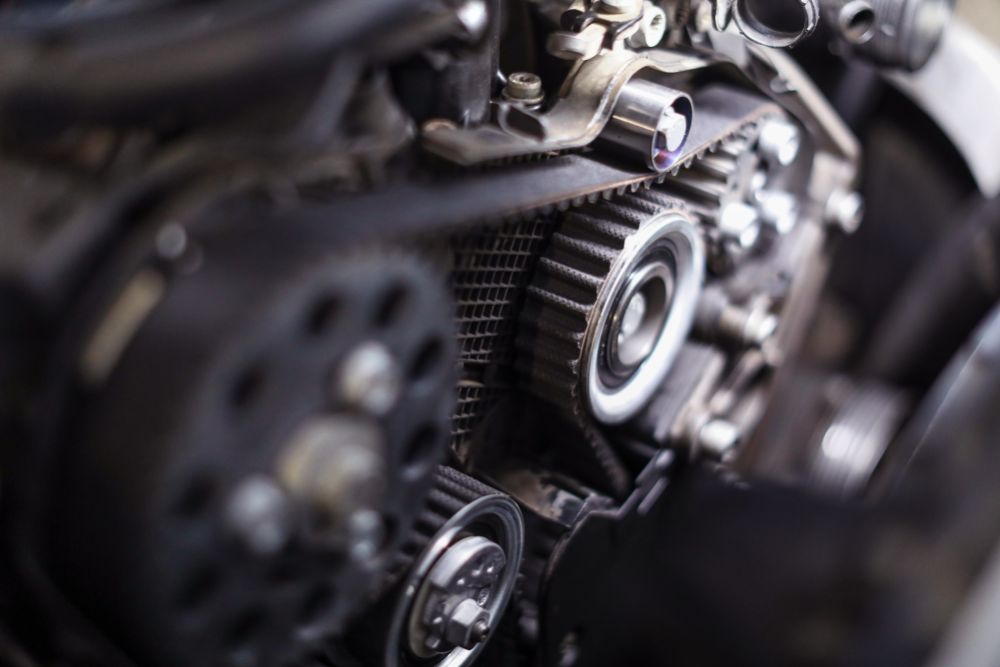
If you own a Volkswagen Golf or are considering purchasing one, understanding whether your engine has a timing belt or chain is crucial for maintenance planning. Different Golf models and engine variants use either timing belts or chains, and knowing which one your vehicle has can help you anticipate maintenance costs and prevent potential engine damage.
Which Volkswagen Golfs Have Timing Belts Or Chains?
The answer to whether a Volkswagen Golf has a timing belt or chain depends entirely on the model year and engine type.
Golf Mk4 (1997-2004)
Most petrol engines in the Mk4 Golf used timing belts, including the popular 1.8T and 2.0L variants.
The 1.6L and 2.0L naturally aspirated petrol engines featured rubber timing belts that required replacement every 90,000 kilometres or five years, whichever came first.
The 1.8T turbocharged engine also used a timing belt, with similar replacement intervals recommended.
Diesel engines in the Mk4, including the 1.9 TDI, also utilised timing belts with recommended replacement intervals of 90,000 kilometres.
Golf Mk5 (2004-2009)
The Mk5 Golf saw a mix of timing belts and chains, depending on the engine variant.
The FSI and TFSI petrol engines predominantly used timing chains, which were designed to last the lifetime of the engine.
However, the 1.4L and 1.6L naturally aspirated petrol engines continued to use timing belts.
The 2.0L TDI diesel engines in this generation used timing belts, requiring replacement at similar intervals to the Mk4.
Golf Mk6 (2009-2013)
The Mk6 Golf continued the mixed approach of its predecessor.
Most TSI petrol engines in this generation featured timing chains, including the popular 1.4L and 2.0L variants.
The diesel engines, particularly the 2.0L TDI, continued to use timing belts with recommended replacement intervals.
Golf Mk7 (2013-2020)
The Mk7 saw a shift towards timing chains in most applications.
Nearly all TSI petrol engines in this generation used timing chains, designed to last the lifetime of the engine.
However, the diesel variants, including the 2.0L TDI, still utilised timing belts requiring regular replacement.
Golf Mk8 (2020-Present)
The current generation Golf predominantly uses timing chains across its petrol engine range.
Most modern TSI engines feature timing chains designed for the vehicle’s lifetime.
The diesel variants continue to use timing belts, maintaining the pattern from previous generations.
Critical Maintenance Considerations
Timing Belt Maintenance
For Golf models with timing belts, regular inspection and timely replacement are crucial.
In New Zealand’s climate, it’s especially important to adhere to manufacturer-recommended replacement intervals, as our varied weather conditions can affect belt wear.
Failing to replace a timing belt at the recommended interval can result in catastrophic engine damage if the belt fails.
The cost of timing belt replacement is significantly less than the potential engine repairs needed if the belt breaks during operation.
Timing Chain Maintenance
While timing chains are generally more durable than belts, they aren’t entirely maintenance-free.
Regular oil changes with the correct grade of oil are essential for timing chain longevity, as the chain relies on proper lubrication.
Some Golf models with timing chains may develop chain stretch over time, which can cause timing-related issues and trigger warning lights.
Need Help With Your Volkswagen Golf’s Timing System?
Understanding and maintaining your Volkswagen Golf’s timing system is crucial for long-term reliability and performance.
At Dosdon, our skilled technicians specialise in Volkswagen maintenance and repair, including timing belt and chain services. Whether you need a timing belt replacement or want to diagnose potential timing chain issues, contact our team today by calling 09 441 3635.

 Looking for Dual Clutch transmission components outside of New Zealand?
Looking for Dual Clutch transmission components outside of New Zealand?